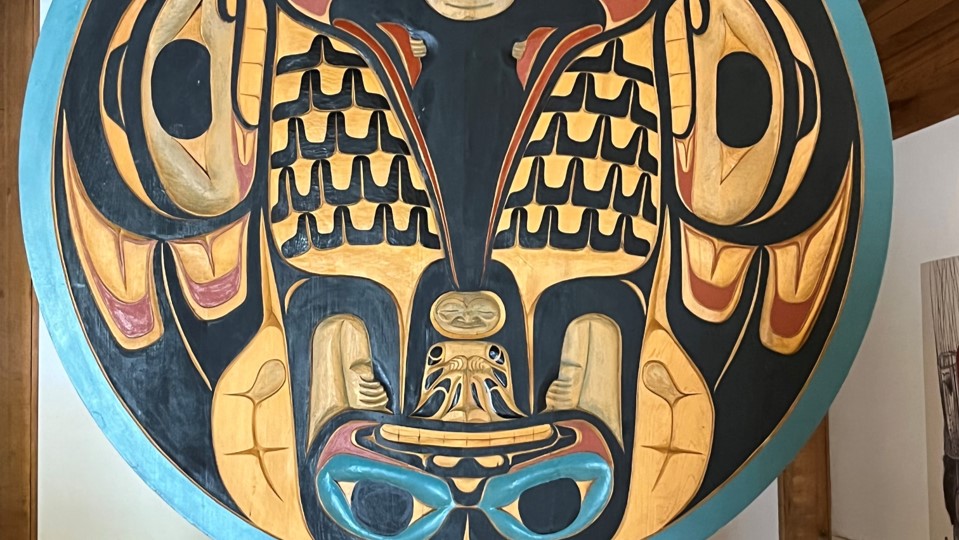Acknowledgement of Territory and of Indigenous Rightsholders
The Indigenous Education Department (IED) of the Coast Mountains School District humbly recognizes that our district resides as guests on the ancestral, unceded territories of the Gitxsan, Haisla, Nisga’a, and Ts’msyen Peoples. We honour their ancestral histories, rich cultures and diverse communities that are rooted in these lands, which have sustained their peoples for countless generations. With deep appreciation, we honour the wisdom of their ancestors, revered elders, and knowledge holders who embody resilience and uphold traditions based on reciprocity, responsibility, respect, and profound interconnectedness. These principles serve as our compass as we humbly navigate and learn our role in contributing to reconciliation. We also acknowledge that we are in service to Indigenous Peoples (First Nations, Metis and Inuit) from diverse nations and communities who are also guests on traditional lands and who have made these communities their home. This acknowledgment signifies our unwavering commitment to reconciliation and to fostering nourishing and transformative relationships that will positively impact the next generations of Indigenous children and youth.
Achieving transformation and improving Indigenous learner success requires collective responsibility among all Indigenous rightsholders and education stakeholders. It demands sustained attention and collective effort to navigate the future for generations of Indigenous children and youth. This journey necessitates responsive, responsible, and respectful approaches that address the needs of Indigenous learners in a reciprocal and relational manner. Everyone is responsible for tending to this work as if it were a ceremonial fire, to keep it burning, this sacred work must be embraced by all.
Indigenous Learners
Our Indigenous Education Department (IED) provides programs and services to support the success of all Indigenous learners. Self-Identification of Indigenous Ancestry (First Nations, Métis, or Inuit): Indigenous ancestry is determined on a voluntary basis through self-identification (status cards, Métis citizenship cards, etc. are not required). In addition to school and district supports and services available to ALL learners of any ancestry, Indigenous learners received enhanced services provided by the IED. As required by the Ministry of Education and Child Care, IED staff must consult with parents-caregivers each year in order to participate in enhanced programs, services and support, delivered by IED staff.
Indigenous Education Monthly Reports
The Indigenous Education Reports, presented to the Board of Education at its monthly Regular Board Meeting, is just one of the ways in which the story of Coast Mountains School District is shared. The report often highlights school specific stories that directly connects to the understanding and respect for Indigenous cultures, improving learning success for all Indigenous students, and the importance of community involvement in making a difference in the lives of Indigenous learners.
2025 Reports
January 2026
Indigenous Education Department Staff
Director of Instruction – Indigenous Education
- Donna Mortimer (effective August 1, 2025)
Administrative Assistant – Indigenous Education
- Vanessa Shirey - Tel: (250) 638-4481 / Email: vanessa.shirey@cmsd.bc.ca
Indigenous Support Workers (ISW)
Enhanced academic, cultural, social-emotional support for Indigenous students following Ministry audit requirements; reporting support and service to Indigenous students using the Indigenous Services Reporting system; offer school-based cultural enrichment for Indigenous students; support transition success including student celebrations; monitoring attendance and academic progress; and supporting school-based initiatives/opportunities for Indigenous students at lunch or afterschool; to provide additional support to Indigenous learners.
How Are We Doing? Report
The How Are We Doing? Report is an annual provincial publication that highlights key metrics of success for Indigenous learners across the Coast Mountains School District. Some of the same measures are used to measure progress as it relates to the implementation of the strategic plan 'Engage, Ignite, Empower 2022-27'.
2023-24 How Are we Doing? Report - Coast Mountains School District (No. 82)
2022-23 How Are We Doing? Report - Coast Mountains School District (No. 82)
